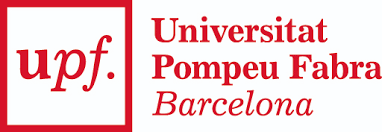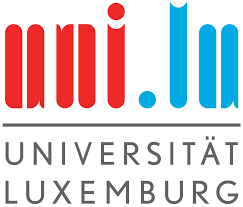
Nationality: German
Research Topic: The next frontier in molecular simulations is to be able to perform reactive simulations using fast machine learning potentials. Accurate prediction of the outcomes of an organic reaction is still an unsolved task and only experienced chemists can make reliable predictions based on underlying mechanistic and quantum chemical intuition. In this research project, the PhD candidate will develop a new methodology for the fast simulation of reactive molecules based on fast machine-learning-quantum computation. The major expected outcomes include selection of a set of relevant and simple systems to produce a database of accurate quantum mechanical data (the data will be generated using GPUGRID.net); training models and neural network potentials to be used for the simulation of the chemical reaction and validation of the models comparing the yield predicted and experimental values in collaboration with other PhD students participating in the project; further validation on internal synthesis data at Bayer and expansion of the applicability domain to a larger set of synthesis routes.
Personal introduction: Early-stage researcher of the Advanced machine learning for Innovative Drug Discovery (AIDD) consortium, focussing on reactive machine learning force fields and molecular dynamics simulations.
After completing my master's degree in quantum physics and artificial intelligence, I was looking for a PhD position where I could apply the knowledge I had gained in both areas. In the AIDD program, I finally found an interesting opportunity not only to work at the intersection of physics, chemistry and machine learning, but also to put my background to good use to solve important and relevant problems.
My research focuses on developing machine learning force fields. Classical force fields have been developed for many years, but they lack accuracy, as many characteristics occurring at both the atom as well as molecular level can only be described via quantum mechanics. On the other hand, quantum mechanics calculations are in most cases impractical, because even well established methods like Density Functional Theory (DFT), which are themselves only approximations, take a massive amount of time and calculations become infeasible for larger molecular systems of interest. And although commonly used force fields do not allow bond-breaking and therefore cannot model reactivity, modern research still mainly utilizes classical force fields in molecular dynamics simulations, as they are fast and in many cases reliable enough. So, the goal during my PhD is to work on replacing classical force fields by machine learning, maintaining the speed of classical calculations but providing the accuracy and correctness of quantum mechanics calculations - establishing fast, reliable and reactive machine learning force fields.
Contact: GitHub LinkedIn Twitter GoogleScholar ORCID
Pre-prints and articles:
- Cremer, J.; Medrano Sandonas, L.; Tkatchenko, A.; Clevert, D.A.: De Fabritiis, G. Equivariant Graph Neural Networks for Toxicity Prediction. Chem. Res. Toxicol. 2023. https://doi.org/10.1021/acs.chemrestox.3c00032
- Le, T.; Cremer, J.; Noé, F.; Clevert, D-A.; Schütt, K. Navigating the design space of equivariant diffusion-based generative models for de novo 3D molecule generation. arXiv. 2023. https://doi.org/10.48550/arXiv.2309.17296
- Cremer, J., Le, T., Noé, F., Clevert, D-A., Schütt, K. T. PILOT: Equivariant diffusion for pocket conditioned de novo ligand generation with multi-objective guidance via importance sampling. Chemical Science, 2024. https://doi.org/10.1039/D4SC03523B
- Cremer, J., Le, T., Clevert, DA., Schütt, K.T. Latent-Conditioned Equivariant Diffusion for Structure-Based De Novo Ligand Generation. In: Clevert, DA., Wand, M., Malinovská, K., Schmidhuber, J., Tetko, I.V. (eds) AI in Drug Discovery. ICANN 2024. Lecture Notes in Computer Science, vol 14894. Springer, Cham. 2024. https://doi.org/10.1007/978-3-031-72381-0_4
- Le, T.; Cremer, J.; Clevert, D-A.; Schütt, K. Equivariant diffusion for structure-based de novo ligand generation with latent conditioning. J. Cheminformatics, 2025. https://doi.org/10.1186/s13321-025-01028-x
Presentations at conferences and meetings
- Cremer, J. "Non-Locality in Equivariant Machine Learning Force Fields", Invited talk at Bayer ML Research, Berlin (June 27th, 2022)
- Cremer, J. "Self-Supervised Equivariant Machine Learning Force Fields", Invited talk at Chodera Lab, MSKCC, New York (July 18th, 2022)
- Cremer, J. "Equivariant Graph Neural Networks for Toxicity Prediction", AIDD on-line seminar (February 1st, 2023)
- Le, T.; Cremer, J.; Clevert, D-A.; Schütt, K. Latent-Guided Equivariant Diffusion for Controlled Structure-Based De Novo Ligand Generation. Poster at ML4MLS Workshop, ICML 2024 (June 26th, 2024)
- Cremer, J., Le, T., Noé, F., Clevert, D-A., Schütt, K. Multi-Objective Guidance via Importance Sampling for Target-Aware Diffusion-based De Novo Ligand Generation. Poster at ML4MLS Workshop, ICML 2024 (June 26th, 2024)
- Latent-Conditioned Equivariant Diffusion for Structure-Based De Novo Ligand Generation. Talk at AIDD Workshop at ICANN 2024 (September 19th, 2024)
Organizations:
University Pompeu Fabra, September 1st, 2021 - February 28th, 2023
Pfizer Pharma GmbH, March 1st , 2023 - August 31th, 2024


Secondments: Université du Luxembourg, April 4th, 2022 - April 29th, 2022 and Helmholtz Munich, January 2nd - February 25th, 2023


